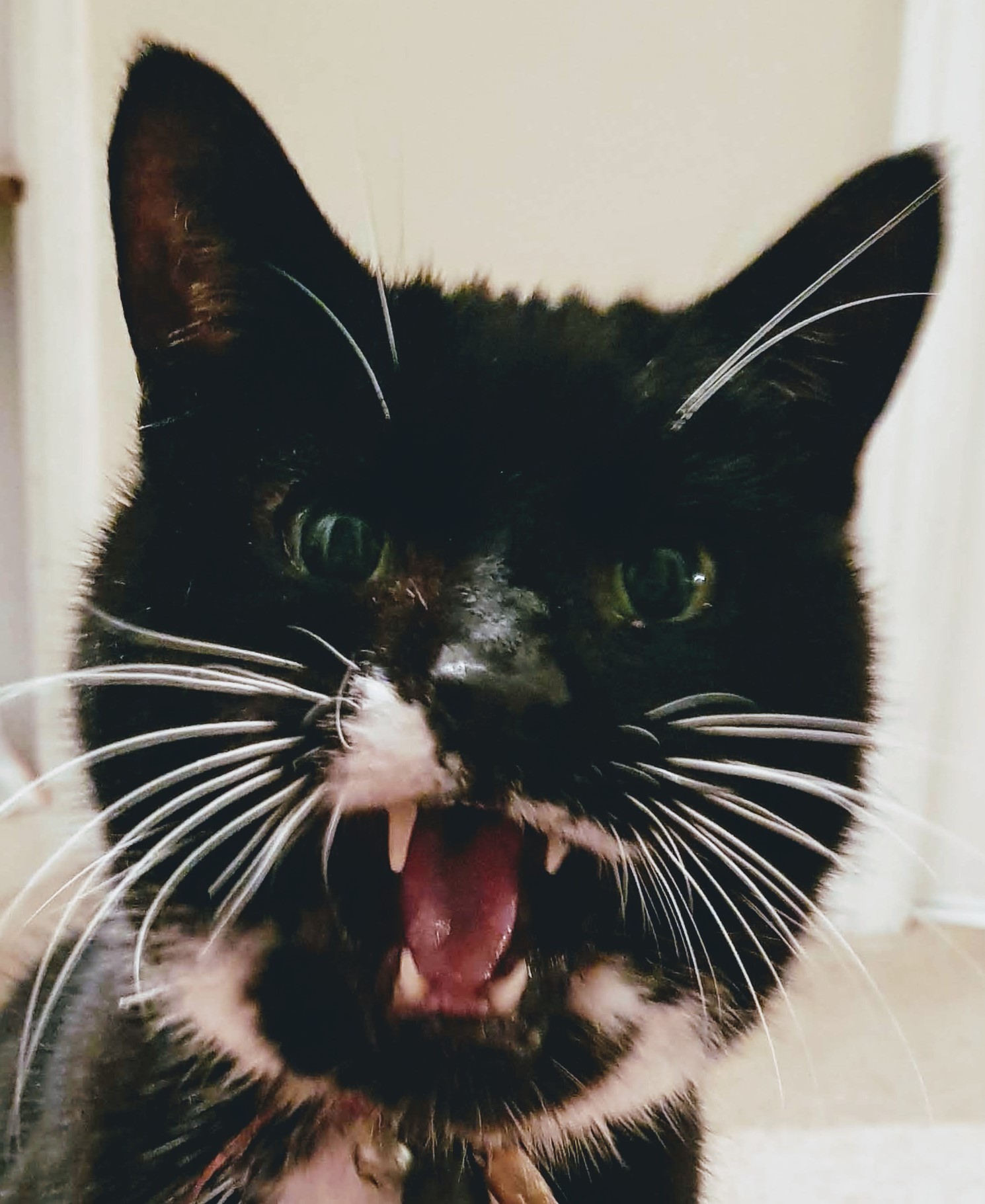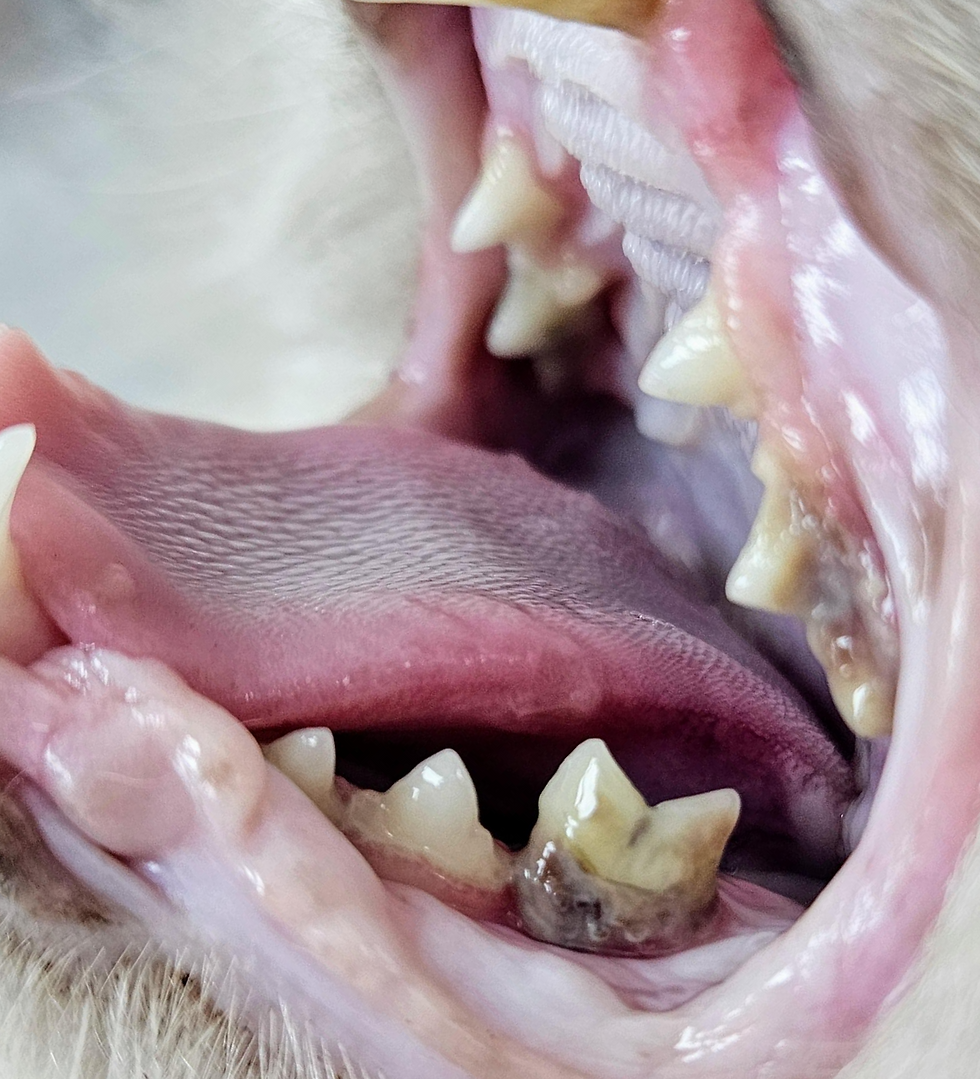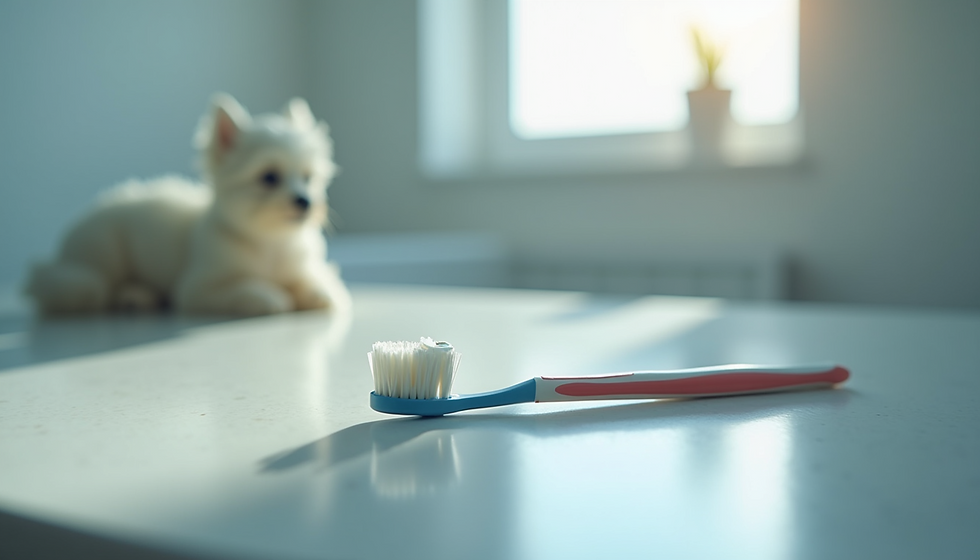Understanding the Basics of Veterinary Dentistry
- thedentalrvn

- May 17, 2025
- 4 min read
Veterinary dentistry is a specialised field that focuses on animal oral health. Like humans, pets need proper dental care to live healthy and happy lives. This post will explore the various aspects of veterinary dentistry, including its importance, common dental problems in pets, preventive measures, and treatments.
The Importance of Veterinary Dentistry
Maintaining good oral hygiene is crucial for your furry friends. Neglecting dental health can lead to issues ranging from bad breath to severe health complications. According to the American Veterinary Dental College, more than 80% of dogs and 70% of cats show signs of dental disease by age three.
Proper veterinary dentistry can significantly improve an animal’s quality of life. Regular dental check-ups can help identify problems early, reducing the need for more invasive treatments later. Just as we visit the dentist for cleanings and check-ups, our pets also benefit from routine veterinary dental care.

Common Dental Problems in Pets
Just like humans, pets can experience a range of dental issues. Here are some common conditions veterinarians encounter:
Periodontal Disease: This is the most prevalent dental disease in pets. It starts with plaque build-up, which can lead to gum inflammation and infection. If left untreated, it can result in tooth loss.
Tooth Fractures: Pets often chew on hard objects, which can lead to chipped or broken teeth. This can be painful and may require extraction or other dental procedures.
Malocclusion: This refers to the misalignment of teeth. It can lead to difficulties in chewing and can cause wear on the teeth.
Oral Tumours: Unfortunately, some pets may develop tumours in their mouths. Regular dental exams can help in early detection, improving treatment success rates.
Bad Breath (Halitosis): While it might seem trivial, persistent bad breath can indicate underlying dental disease. It's important not to ignore it.

Preventive Measures for Dental Health
Preventive care is vital for maintaining your pet’s dental health. Here are several recommendations for pet owners:
Regular Veterinary Visits: Schedule dental check-ups at least once a year. Your veterinarian can perform a thorough examination and cleaning to prevent dental diseases.
Home Dental Care: Brush your pet’s teeth regularly. Use pet-specific toothpaste and brushes for this. It might take some time for your pet to get used to it, but consistency is key.
Dental Chews and Toys: Utilise pet toys designed to promote dental health. Many dental chews can reduce plaque and tartar build-up.
Healthy Diet: A well-balanced diet contributes to overall health, including dental health. Consult your veterinarian for recommendations on the best food for your pet.
Recognising Symptoms: Stay vigilant for signs like drooling, difficulty eating, or sensitive behaviours. Early detection can save you and your pet from unnecessary pain and expensive treatments.

Veterinary Dental Treatments
If your pet shows signs of dental problems, various treatments are available depending on the severity of the issue. Here’s a breakdown:
Dental Cleaning: A professional cleaning can help remove tartar and plaque that brushing at home may miss. Pets require general anaesthesia to ensure they remain still.
Tooth Extraction: In cases of severe decay or fracture, extraction may be necessary. This can relieve pain and prevent further issues.
Root Canals: While more common in humans, root canals can be performed on pets when a tooth is severely infected but salvageable.
Fluoride Treatments and Sealants: These treatments can help protect teeth from decay, similar to how they work for human dental care.
Surgical Intervention: In rare cases, tumours or cysts in the oral cavity may require surgical removal as part of treatment.
Taking care of your pet's dental health is an ongoing process critical to their overall well-being. Regular visits to the vet and a home dental care routine can make a significant difference.
Ensuring a Healthy Smile for Your Pets
As we have explored, veterinary dentistry is essential for pets' overall health and happiness. Pet owners can take proactive steps to prevent dental issues by understanding the basics of dental care. Here are some additional tips:
Educate Yourself: Understand the signs of dental disease and proper dental care techniques. Pet owners who are informed can better advocate for their pets.
Be Consistent with Care: The best results come from routine. Create a dental care schedule and stick to it.
Engage with Your Veterinarian: Do not hesitate to ask questions during visits. Discuss concerns about your pet’s dental care and the best practices for their specific needs.
Utilise Resources: Explore online resources or local seminars about veterinary dental care. Staying informed can improve your pets' care.
In summary, ensuring your pet has healthy teeth and gums is not just a luxury; it's a necessity. Pet owners who prioritize their furry companions' oral health are rewarded with healthier lives.
By embracing comprehensive knowledge and proactive care, you can help your pet navigate the complexities of veterinary dentistry and maintain that cheerful, wagging tail for years to come!






Comments